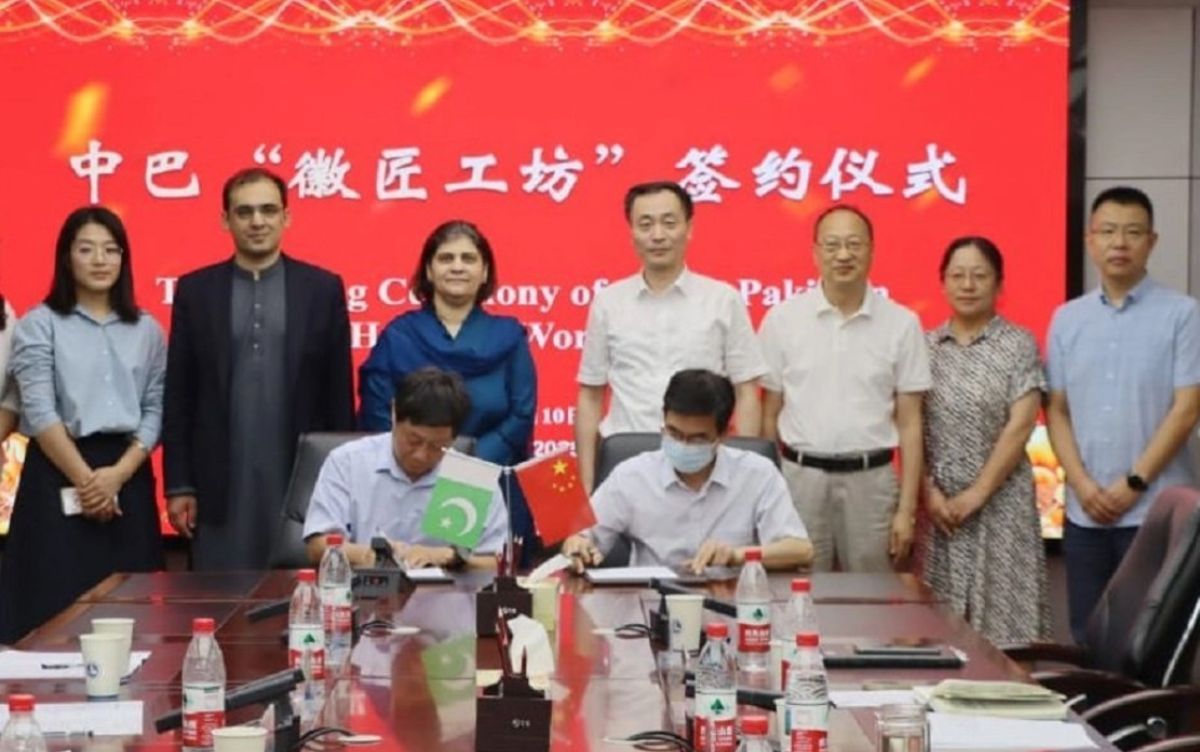CPEC Phase-II Boosts Pakistan-China Technical Education Ties
In a major advancement under Phase II of the China-Pakistan Economic Corridor (CPEC), Pakistan and China have agreed to jointly launch technical training programs across multiple high-demand sectors, including construction engineering, artificial intelligence, agriculture, and hospitality management. This initiative is part of a broader effort to enhance vocational education and skill development through bilateral cooperation.
The agreement was reached during an official visit to China from July 6–12, 2025, by Gulmina Bilal Ahmad, Chairperson of Pakistan’s National Vocational and Technical Training Commission (NAVTTC) and co-chair of the China-Pakistan TVET-Industrial Center of Excellence (CPTICE). The visit, made on special instructions from Prime Minister Shahbaz Sharif, was focused on deepening technical collaboration between the two nations.
Consultations took place at the Embassy of Pakistan in Beijing and included high-level meetings with key institutions such as the China International Intellectual Group (CIIC). Outcomes included agreements on joint curriculum design, vocational training exchanges, and stronger connections between academic institutions and industry stakeholders.
 P.c. China Pakistan Economic Corridor
P.c. China Pakistan Economic Corridor
A significant highlight was Gulmina’s working session with Li Jinsong of CPTICE, hosted by the TANG International Education Group. Both sides confirmed the formal rollout of collaborative training programs in several technical domains. In addition, MoUs were signed with leading vocational institutes including Anhui Water Conservancy Technical College and Jinan Vocational College—where Pakistan was introduced to the “Project 210” smart manufacturing model.
One of the key milestones of the visit was the agreement to establish the China-Pakistan High-Skilled Talent Training Center at the Zhejiang Institute of Mechanical and Electrical Technician, aimed at boosting expertise in e-commerce and smart manufacturing. Further, at Anhui College, both nations agreed to set up the China-Pakistan Huijiang Workshop, complete with residential facilities for Pakistani trainers.
The delegation also toured Zhejiang Soton Holding Group, the world’s largest straw manufacturer, where they studied corporate training practices with direct relevance to Pakistan’s SME development goals.
Throughout the visit, multiple memoranda of understanding and future cooperation plans were signed to create a sustainable mechanism for mutual vocational training, international certification recognition (including with Saudi Arabia and Oman), and alignment with global labor demands.
This collaborative initiative is expected to significantly enhance employability among Pakistani youth and play a vital role in developing a skilled workforce to power the next phase of CPEC-led industrial growth.